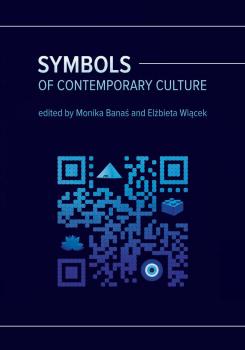Symbols of Contemporary Culture
Słowa kluczowe:
cultural diversity, Siberian Tradition, Culture in BulgariaStreszczenie
A discourse on symbol constituting the content of this book has been presented in various cultural and temporal contexts. In particular articles we find different axionormative dimensions, where objects, actions, pictrues, buildings, material and non-material artefacts get symbolic meanings. All the essays addressing different cultural traditions and historical backgrounds stress the immanent, everlasting feature of symbol, namely, "pointing beyond itself" to something that is unquantifable and mysterious.
By this transcendent process we may get closer or even touch spaces, times, thoughts and feelings of previous generations, which makes us conscious actors and agents of the human past, present and even future. This extraordinary competence, however, cannot be practiced when one remains ignorant to symbolic phenomena.
Reading these collected essays, we are provided with a relevant general notion that the postmodern human, depending so much on technology and science, still remains in need of symbols.
Rozdziały
-
TABLE OF CONTENTS
-
Introduction .......... 7
-
Old Symbol in Contemporary Culture. Turkish Evil Eye Bead – from Ancient Amulets to Commercial Gifts .......... 15
-
Symbolic Space. From Narrative to Experience .......... 23
-
Ethnic and Cultural Diversity in the High North .......... 51
-
Symbolic Types – Journalism and Politics .......... 71
-
Sufi Motives in Elif Shafak’s Writing Perceived as a Bridge between East and West .......... 85
-
The Book as Polemic Symbol of Magic Powers in the Carpathian and in the Siberian Tradition .......... 95
-
The Legacy of John Paul Ii. Teachings on Work-Family Balance from the “Bard of the Civilization of Love” .......... 111
-
Agnieszka Kuczkiewicz-Fraś, The Symbolism of Continuity and Change. Narendra Modi .......... 129
-
The Symbols of Protest Culture in Bulgaria 2013-2014. Performance, Artifacts and New Modes of Civil Activity .......... 151
-
The Historical and Modern Architecture in Aesthetic and Symbolic Metamorphosis over Time .......... 175
-
The Role of New Social Movements in the Shaping of Space .......... 185
-
The Lego Brick. A Re-Construction of a Contemporary Culture .......... 201
Downloads
Bibliografia





